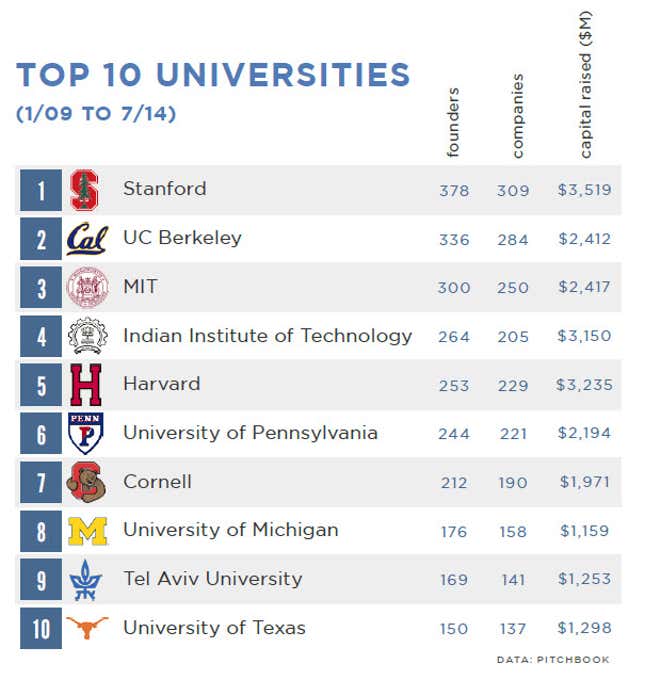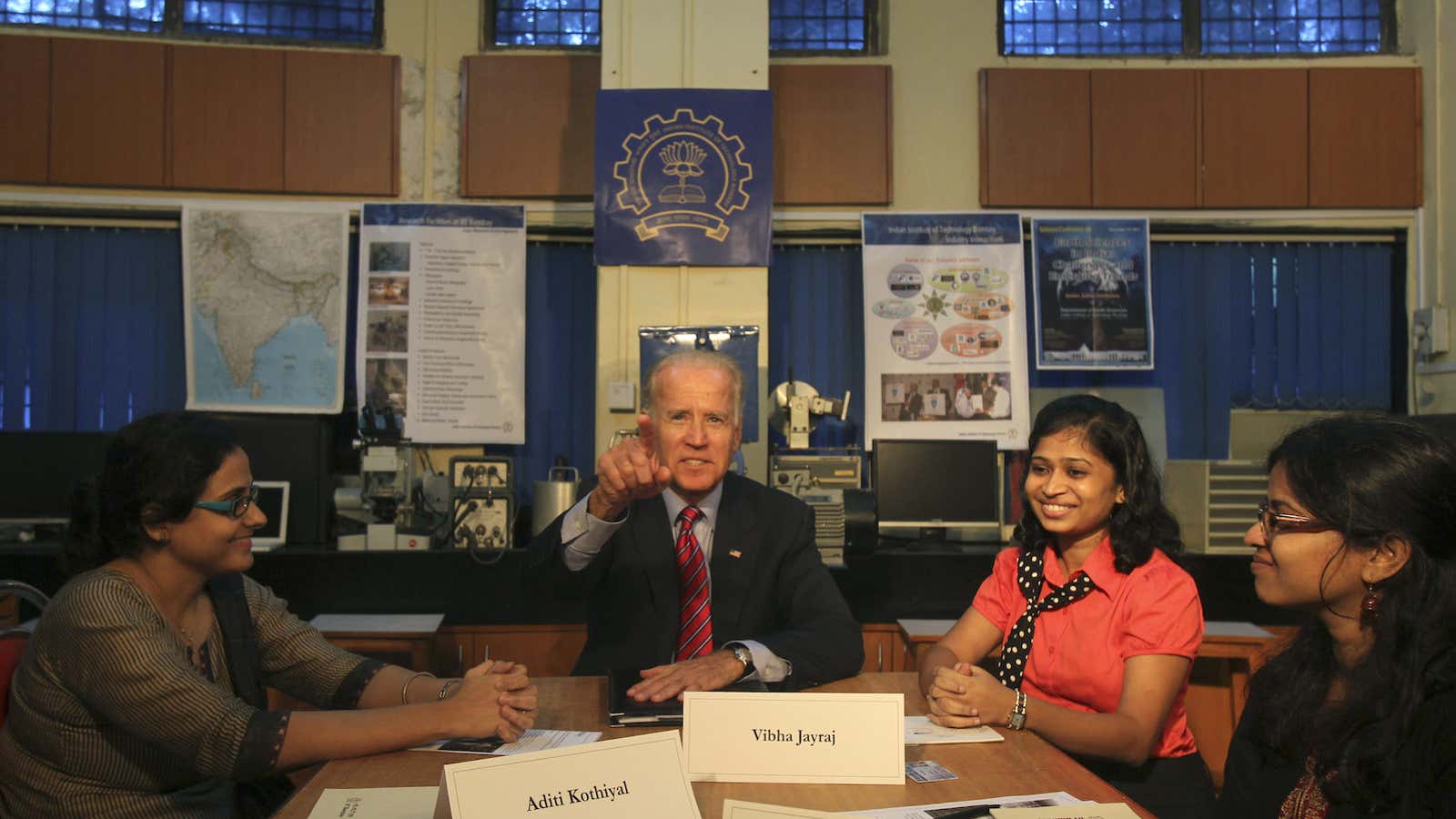If you need one more reason to justify why it’s so incredibly difficult to get into an Indian Institute of Technology (IIT), then consider this—IITs are among the world’s most entrepreneurial undergraduate universities, even ahead of storied Ivy League institutions such as Princeton, Yale and Cornell.
IITs are ranked fourth (just ahead of Harvard) in a new ranking of the top 50 universities that have produced venture capital (VC)-backed founders. The study, compiled by PitchBook Data, a US-based private equity and VC research firm, took into account funding data between 2009 to July 2014, and sifted through educational backgrounds of over 13,000 founders globally.

Compared to their peers in US, Europe, and even China, Indian universities and colleges have never impressed academically. In the Times Higher Education World University Rankings 2013-2014—that takes into account teaching, research, knowledge transfer and international outlook—IIT- Delhi, IIT-Kanpur, IIT- Kharagpur and IIT- Roorkee, are ranked between 351-400.
That’s where the PitchBook ranking methodology differs. The primary ranking criteria is the total number of founders, followed by number of startups and total capital raised. In the study, the IITs had a total of 264 entrepreneurs, who have founded 205 companies and cumulatively raised $3.15 billion.
In terms of total capital raised, they are just behind Stanford ($3.51 billion) and Harvard ($3.23 billion). Stanford, situated in the heart of Silicon Valley, tops the list. The others in the Top 10 include the usual suspects, like the University of California, Berkeley, MIT, Harvard University, the University of Pennsylvania and Cornell. Given Israel’s tech powerhouse status, the only other non-US college is Tel Aviv University, which comes in at number 9.
One big reason why the IITs have pipped their globally well-known peers is because the report views all 16 IITs as one university. “The study does not exactly compare apples to apples by clubbing all IITs together, helping them rank higher purely by virtue of the fact that they collectively cast a wider net than any other university mentioned,” says Sangeet Paul Choudary, an IIT-Kanpur and IIM- Bangalore alumnus and director of Singapore-based Platform Thinking Labs, a senior executive advisory firm.
So, does the matter of size take anything away from the fact that the IITians are a potent force in the world of entrepreneurship? Clearly not. “Less than 2 percent of the applicants get selected, and less than 0.1 percent make it to a top rated branch like computer science or electrical engineering, which is where most of tech-related entrepreneurship and VC activity takes place,” adds Choudary.
Last year, IITs came in at number 10, when only companies that were founded in the US were taken into account. They have jumped six places this year as companies founded in India are also taken into account. These include e-commerce superstars such as Flipkart and Snapdeal. This reflects the fact that Indian startups now have the maturity to attract large amounts of capital.
The reasons IIT undergrads are so successful in securing institutional investment are not hard to gauge. They have one of the toughest entrances exams in the world and possess a close alumni network. Their top tech talent has been emigrating to the US for over three decades, they have a globally recognised brand name, and their students are entrepreneurial and risk-takers.
The difficulty of the joint entrance exam (JEE), which replaced the IIT-JEE in 2013, ensures only the cream get in. This means that only the brightest of the 1.4 million who took the test in 2014 snagged the 10,000-odd seats available.
“JEE picks some of the best who are willing to work hard on one specific problem—JEE itself—for many years. We are looking at a special segment that aligns with entrepreneurship. In addition the folks from IIT frequently come from middle class families and are keen to succeed,” says Ashish Gupta, managing director of India-based VC firm, Helion Advisors.
33.2 percent of all companies founded by immigrants in the US had an Indian co-founder, according to a study by Kauffman Foundation, with Indians founding more technology and engineering firms than the next nine immigrant groups combined.
IITian founders include the likes of Vinod Khosla (Sun Microsystems), Bharat Desai (Syntel) and Gururaj Deshpande (Sycamore Networks). Some have become VC investors themselves, including Khosla (SKS Microfinance and Square) and Mayfield’s Naveen Chadha (Akamai, Makemytrip and Persistent Systems).
Andy White, lead research analyst for PitchBook, says one reason India has become a hot-bed of entrepreneurship is international companies moving jobs to India. “Large corporations such as Microsoft and Google hire a larger number of employees from India. After building a resume at one of these major companies, employees are connected enough to make a foray into the world of startups,” says White.
Sharad Sharma, co-founder of iSPIRT, a think-tank that champions the causes of startups, thinks the strong IIT alumni network is key. “This helps the entrepreneur be better prepared for VC fund raising. I think the better preparation makes a big difference.”
Follow Nelson Vinod Moses on Twitter at @nelsonvinod.
